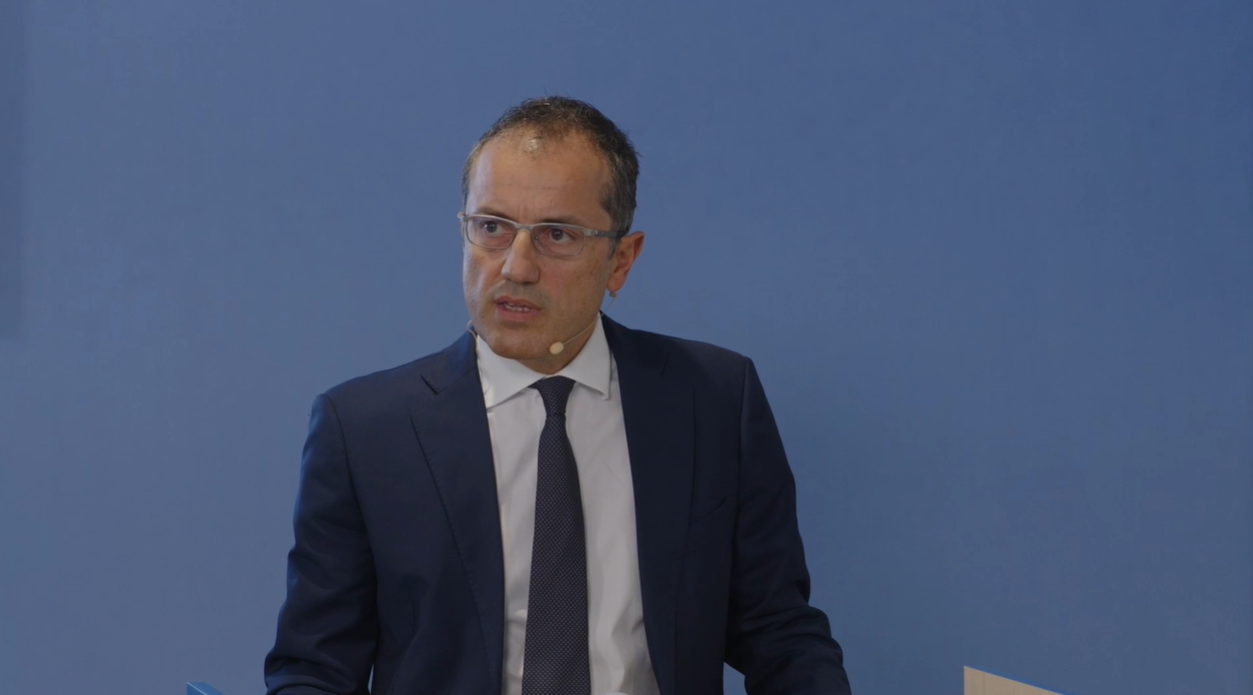The Unix philosophy - simple and beautiful (so it "just works")
“The Unix Philosophy in One Lesson”
“All the philosophy really boils down to one iron law, the hallowed ‘KISS principle’ of master engineers everywhere:”

https://homepage.cs.uri.edu/~thenry/resources/unix_art/ch01s07.html

src: https://homepage.cs.uri.edu/~thenry/resources/unix_art/ch01s07.html
“Keep It Simple, Stupid” or “Keep It Super Simple” (less offensive)
The Unix philosophy emphasizes building simple, short, clear, modular, and extensible code that can be easily maintained and repurposed by developers other than its creators.
This is what allows a system to “boom” “it just work” as Mr Jobs puts it.
The Unix philosophy favors composability as opposed to monolithic design.
Later summarized by Peter H. Salus in A Quarter-Century of Unix (1994):[1] This is the Unix philosophy:
- Write programs that do one thing and do it well.
- Write programs to work together.
- Write programs to handle text streams, because that is a universal interface.
- there is more to learn from the “Elders of UNIX”:
would add:
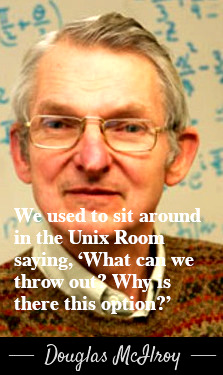
Malcolm Douglas McIlroy: “Everything was small… and my heart sinks for Linux when I see the size of it. […]
The manual page, which really used to be a manual page, is now a small volume, with a thousand options…
We used to sit around in the Unix Room saying, ‘What can we throw out? Why is there this option?’
It’s often because there is some deficiency in the basic design — you didn’t really hit the right design point.
Instead of adding an option, think about what was forcing you to add that option.” (src: https://en.wikiquote.org/wiki/Doug_McIlroy)
https://archive.org/details/DougMcIlroy_AncestryOfLinux_DLSLUG
Ken Thompson and Dennis Ritchie, key proponents of the Unix philosophy.
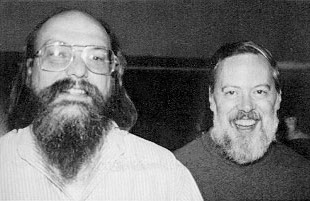

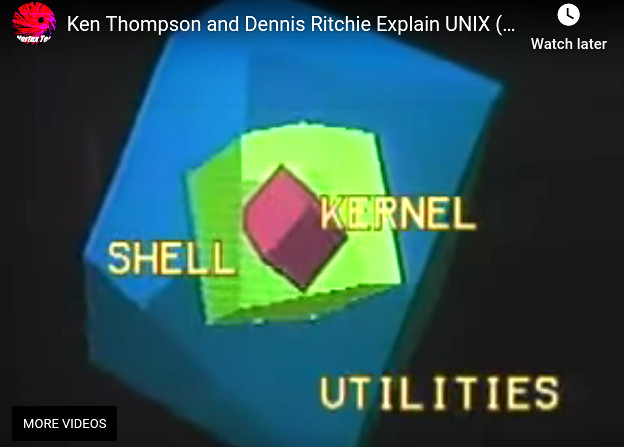

“we are trying to make computing as simple as possible – in the late 1960s Dennis Richie and I realized that the then current Operating System where much way too complex – we attempted to reverse this trend by building a small simple operating system on a minicomputer” (Ken Thompson)
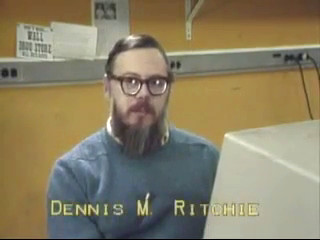
“What we wanted to preserve was not just a good programming environment in which to do programming – but a system around which a community could form – fellowship – we knew from experience that the essence of communal computing – as supplied by remote access time sharing systems – is not just to type programs into a terminal instead of a key-punch – but to encourage close communication” (Dennis M. Ritchie)
https://homepage.cs.uri.edu/~thenry/resources/unix_art/ch01s06.html
https://en.wikipedia.org/wiki/Unix_philosophy
“As a programmer, it is your job to put yourself out of business. What you do today can be automated tomorrow.”
— Doug McIlroy
Damn this guy is a philosopher.
Working in IT seems to be just like capitalism itself: working to make one’s job obsolete. “great” outlook.
There need to be alternative lifestyles that make sense and are sustainable.
https://ytpak.net/watch?v=JoVQTPbD6UY
[video width=”586″ height=”436″ mp4=”https://dwaves.de/wp-content/uploads/2017/05/Ken-Thompson-and-Dennis-Ritchie-Explain-UNIX-Bell-Labs.mp4″\]\[/video\]
what happens if companies can not agree on standards:
#linux #gnu #gnulinux #opensource #administration #sysops #unix #philosophy #m #mcilroy #philosophie #torvalds #itsec #cybersecurity #security #kernel #thompson #ritchie #apple #jobs #standards #standard #gnu-linux #simplify #open #source #openstandards
Originally posted at: https://dwaves.de/2017/05/02/the-unix-philosophy-simple-and-beautiful-so-it-just-works/













